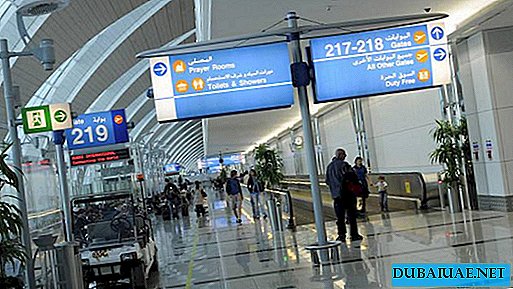Question: In the situation of the global financial crisis, what should property buyers do if the seller has disappeared, his office is closed, and the phones do not answer?
Answer: Every resident of the United Arab Emirates, that is, you and I, are directly or indirectly associated with the Dubai real estate market. The economic crisis affecting all countries of the world, one way or another, affects every person. It must be admitted that the international financial crisis, which entailed restrictions on loans to buyers and increased lending rates, forced many developers to freeze their projects indefinitely. The Escrow Account Law No. 8 of 2007 obliged organizations to open guarantee or trust accounts for their projects, thus providing the buyer with more intelligible information about the quality of the developer and its reliability. Today, all new organizations are required to follow this law. However, some real estate sources report that at the end of 2008, the new Law No. 8 will apply to all real estate developers existing in Dubai. The Real Estate Oversight Office (RERA) and the new Law No. 8 will allow Dubai property buyers who have lost investment in the past due to construction delays to feel more confident. The Real Estate Control Authority (RERA) strictly warns real estate investors about the need to pay attention to the following factors:
- The real estate developer must be registered with RERA and have a registration number
- Cash contributions to the developer must be credited to the escrow account (trust account) opened with a bank authorized by RERA. A real estate broker must have a special certificate with a stamp and registration number RERA.
In addition, the first thing that a property buyer should check is whether the developer is registered with the Dubai Land Department. Only the Land Department can guarantee the protection of the rights of the buyer, and only then the buyer can sign a Memorandum of Understanding (MOU) or a contract with the developer. The only measure that the buyer can take is to file a complaint (claim). Then follows her trial in a civil court, which can then be attached to a complaint to a higher authority. The buyer may file a complaint with RERA and other relevant authorities, such as the police and the court. That is, in the above situation, if the developer has disappeared and his office is closed, you must contact the local police investigation department and file a complaint against the developer.
Question: Please name state institutions, where should you make claims regarding real estate?
Answer: The Real Estate Supervision Authority (RERA) is the main body in Dubai responsible for the legalization of the real estate sector. In the event of a dispute with the developer, the buyer must first contact RERA, and the management will examine the claim and its essence, as well as verify the contract signed by the buyer.
RERA will then file the case with the Real Estate Court, which is essentially a civil court. Disputes over payment defaults arising from delayed construction deadlines fall into the largest category of claims received by the new Dubai Real Estate Court. This court may accept the case for proceeding if both parties have gone to court and registered their contact numbers and addresses. Experts sitting in a real estate court must be approved by the Dubai courts and swear that they will handle cases impartially and fairly.
 Question: Can I return the money paid for real estate?
Question: Can I return the money paid for real estate?
Answer: It depends on the terms of the contract, which was signed by both parties, and the mutual obligations prescribed in the contract. Contracts usually indicate the legislation under which they fall. If this is due in the contract, and if there were obvious violations of its articles by the developer, then the buyer has the right to take steps to protect his rights in court or in another alternative form to try to find a solution to the disputed situation. The buyer should be aware of the main provisions of the contract and protect their rights in the most effective ways to prove that the developers did not build what they promised, or did it in the wrong time. Usually, there are special clauses in the sales contract that stipulate the possibility of delays based on the reasons for the failure to meet the construction deadlines that are directly related to or independent of the developer. These provisions usually explain at what stage the buyer can terminate the contract unilaterally, and what will be the amount of payments and compensations due to him. Particular attention should be paid by investors to those articles of the agreement, which stipulate the dates of commissioning of the facility and for what reasons the developer can shift these terms. In order for a contract to be a truly legal legal document, contractual obligations must be replaced by proportional satisfaction. Proportional satisfaction is the gain or loss received by the parties and motivating the parties to fulfill their contractual obligations. This again depends on the decision of the court considering the buyer’s complaint.
Question: Who can guarantee that the construction of planned projects will continue?
Answer: Payments made by buyers of off-plan properties in Dubai will be protected by specially managed trust accounts, so-called escrow accounts, according to the Law on Trust Accounts No. 8. This law is mandatory for any company or individual receiving payments for real estate whose construction is not yet completed. Developers launching new residential or commercial multi-story buildings and communities should contact the Dubai Land Department in order to open a guarantee account. Money paid by buyers or financial institutions for real estate units will be credited to a special account opened for each specific new building with an authorized bank. The law states that developers must appoint a manager for a guarantee account, who will monitor the use of funds from the account. The developer should, first of all, receive a certificate from a consultant working at the facility, which usually indicates which phase of construction has already been completed. The manager of the guarantee account must notify the Land Department of the amounts that have been issued to the developer. Even after the completion of the project, the developer will not have access to the amounts in the account. The Land Department freezes 10% of the cost of the project on the guarantee account for one year after the construction is completed, until all real estate units are registered in the names of the buyers and the last documents are issued confirming ownership.
If any requirements of the law are not met, the developer may be fined at least AED 200 thousand. In addition, in order to reduce the level of market speculation, RERA issued a Decree of January 1, 2009, in which developers and banks are ordered not to charge buyers and investors more than 20% of the value of real estate before the start of construction. "For real estate under construction, developers who have collected more than 20% of the property’s contractual value from buyers should immediately stop charging further payments until the amounts collected on guarantee accounts begin to reach builders." RERA has also issued regulatory procedures related to Law No. 13, which established the Interim Property Register for all planned properties that must be registered with the Department. Thus, the Land Department can guarantee that all planned real estate objects fall under the above requirements, which developers must strictly follow.









